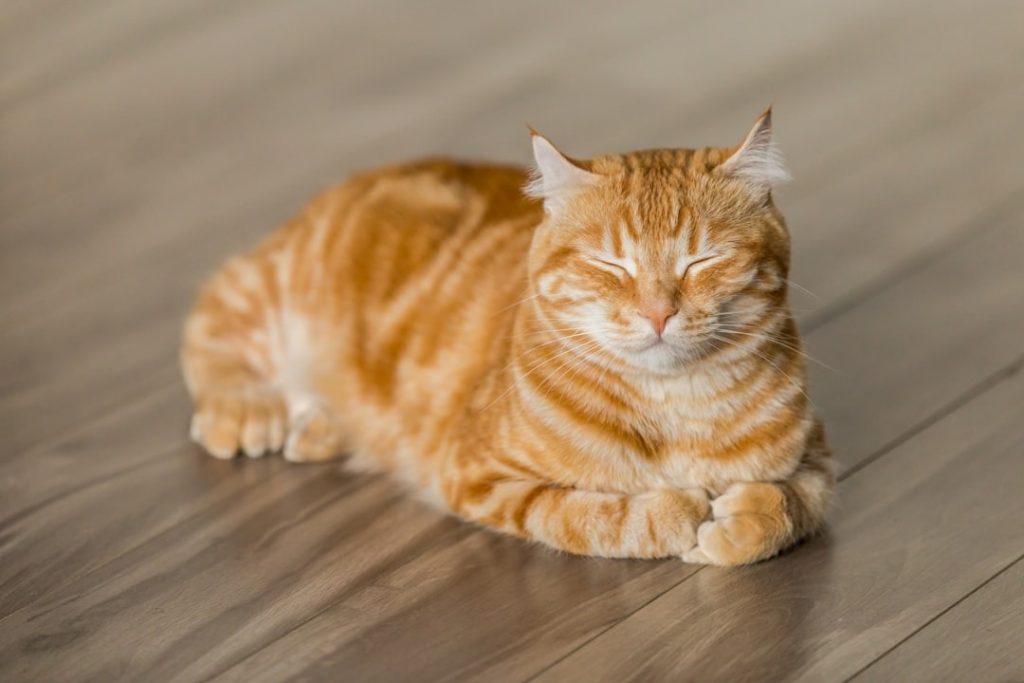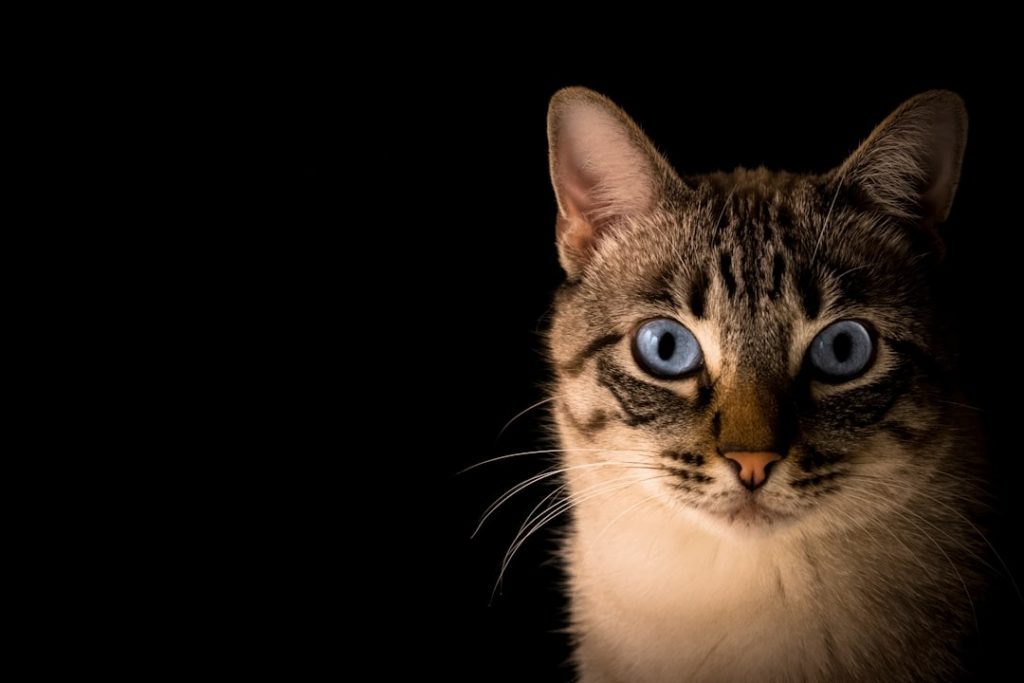Physical Address
304 North Cardinal St.
Dorchester Center, MA 02124
Physical Address
304 North Cardinal St.
Dorchester Center, MA 02124

When you accept a cat into your home, you become their lifelong best friend. Like us, they have different needs as they age. Knowing what to look for and how to keep them content and at ease in their golden years is crucial. The common signs of aging, how to identify and treat conditions like arthritis, and how to provide the best care possible are all covered in this guide.
It’s a great question, and the answer can be a little surprising. A lot of people think cats are only seniors when they are very old, but the aging process starts sooner than you might think.
Cats don’t age the same way people do. Here’s a simple way to look at their life stages:
Cats’ bodies naturally change as they age. They may experience some deterioration in their senses, such as hearing and vision. They begin to lose some of the smooth cushioning in their joints. Their immune system may become slightly weakened, and they may have trouble digesting their food. You can better provide for their needs if you are aware of these changes.
Cats are masters at hiding pain and problems. They don’t want to show weakness. So, it’s up to you to be a detective and watch for these common signs that they might be getting older.
You know cats love to nap, but a senior cat will sleep even more. They might seem less interested in playtime and just want to find a sunny spot for a long snooze. This isn’t always a bad thing, but a sudden, big change in how much they sleep could be a sign of discomfort.
It’s very common for senior cats to either lose or gain weight. Some lose their appetite or can’t digest their food as well, leading to weight loss. Others become less active, which can cause them to put on extra pounds. Both can be a problem, so keep an eye on their weight.
Grooming is very important to cats. If you notice your cat’s fur looks a little matted, oily, or messy, it could be a sign that they’re having trouble reaching all their spots. This often happens because it’s painful to twist and bend their body to groom.
A cat’s personality might change as they age. They might become more vocal, or they might hide more often. A once-friendly cat might become a little grumpy or withdrawn because they are uncomfortable.
If your senior cat starts having accidents outside the litter box, don’t just assume it’s a behavior problem. It could be that it’s too painful to climb over the sides of the box because of stiff joints. They might also have a hard time holding their bladder or be using the box more often.
One of the most common health problems for senior cats is arthritis. It’s also one of the easiest to miss.
Arthritis is the swelling and pain of the joints. The joints are where bones meet, and they are covered in a smooth tissue called cartilage. Over time, that cartilage can wear down, causing the bones to rub together. This causes inflammation, which leads to pain and stiffness.
Remember that cats hide pain well, so these symptoms might be subtle.

If you think your cat has arthritis, it’s very important to talk to your vet. They can do a physical exam and sometimes an x-ray to get a clear picture of what’s going on. The vet can give you medicine for pain, special food, or recommend supplements. For more about managing arthritis, you can find a lot of useful information in a guide like this one: Best Senior Cat Health Tips.
A good diet is one of the best things you can do for a senior cat. The right food can help with weight, joint health, and overall well-being.
As cats age, they tend to lose muscle mass. To help them keep their muscles strong, they need food with high-quality protein. When you read the ingredients on a food bag or can, the first ingredient should be a real meat, like chicken, fish, or turkey. This ensures they’re getting the best fuel for their bodies.
Obesity is a big problem for senior cats. Extra weight puts extra stress on their joints. Talk to your vet about a good calorie count for your cat, and make sure you don’t overfeed them. Keeping a healthy weight is the number one thing you can do to protect their joints.
Wet food is often a great choice for older cats. It contains a lot of water, which helps them stay hydrated. Hydration is key for healthy kidneys and can also help with joint fluid. It can also be easier to chew if their teeth are getting a little sensitive.
Some cat foods are made specifically for senior cats. They often contain extra ingredients that help with joint health, like glucosamine and chondroitin. They are also made to be gentle on the kidneys, which is a common concern for older cats.
Supplements can give your cat’s diet an extra boost. Always talk to your vet before you start giving your cat any supplements.
Omega-3s, found in fish oil, are fantastic at fighting inflammation. This can help reduce the pain and swelling in your cat’s stiff joints. It makes them feel more comfortable and willing to move.
These two are like the building blocks for healthy cartilage. Glucosamine helps to repair and build cartilage, while chondroitin helps to stop it from breaking down. They are often found together in joint supplements.
As cats get older, their digestive systems can get a little sensitive. Probiotics are good bacteria that help keep their stomach and gut healthy. A healthy digestive system means they can get all the good nutrients from their food.
Gentle exercise is very important. Movement keeps their joints from getting stiff and helps them keep their muscles strong.
Short, gentle play sessions are best. Try a laser pointer or a feather wand, but keep the action low to the ground so they don’t have to jump very high. Hiding treats around the room can also get them moving in a fun, gentle way.
Cats love to be up high, but jumping can be hard. Get a sturdy cat tree with wide, gentle ramps or steps so they can still reach their favorite high spots. Placing a low scratching post in each room encourages them to stretch and move their bodies.
The key is to encourage, not force. If your cat doesn’t want to play, don’t push them. Just make sure the activities are safe for them, and stop if they seem tired or uncomfortable.
Making a few changes to your home can make your cat’s life much more comfortable.
A heated cat bed or a soft, orthopedic bed can be a wonderful gift for a senior cat. Warmth helps soothe stiff joints, and a supportive bed takes pressure off their body. Place these beds in their favorite quiet spots.
Make sure their food and water bowls are in a place that’s easy to get to. If you have a multi-story house, put bowls on every floor so they don’t have to go up and down stairs just to eat or drink.
Look for a senior-friendly litter box with low sides. This makes it easy for them to get in and out without having to lift their legs high. You should also make sure there are litter boxes on every floor.
Your vet is your most important partner in keeping your cat healthy.
Senior cats should have a checkup every six months. This allows the vet to catch any health problems early, when they are much easier to treat.
During these checkups, the vet can do special tests to check on their kidneys and joints. This helps them create a plan for your cat’s specific needs before problems get too serious.
If your cat is in pain from arthritis, your vet has lots of options. They can give your cat special medicine to help with the pain and swelling, making your cat feel much better.
Caring for an aging cat is a journey, and it’s okay to feel a little sad as you see them change.
It’s natural to feel worried when your cat is aging. Remember to be patient and kind, both to them and to yourself. Every extra day you get with them is a gift.
The best thing you can do is to continue loving your cat and making sure they are comfortable. Give them extra cuddles, keep their home cozy, and let them know how much they mean to you.
Q: Can I give my cat supplements made for people?
A: No, you should never do that. Supplements for people can have ingredients that are not safe or are even toxic for cats. Always use a supplement made for cats, and talk to your vet first.
Q: How can I tell if my cat’s weight is healthy?
A: You should be able to feel their ribs easily when you gently touch their sides, but they shouldn’t stick out. Your vet can give you the best advice on their ideal weight.
Q: What’s the best way to get a picky cat to eat new food?
A: Try to make the change slowly. Mix a little bit of the new food with their old food and gradually increase it over a week or two. You can also try a few different flavors or brands to see what they like best.
It takes love to care for an elderly cat. You can significantly improve their quality of life by being aware of their evolving needs and making a few easy changes to their home and diet. The time and effort you invest now will enable them to spend their golden years with you, in comfort and contentment.